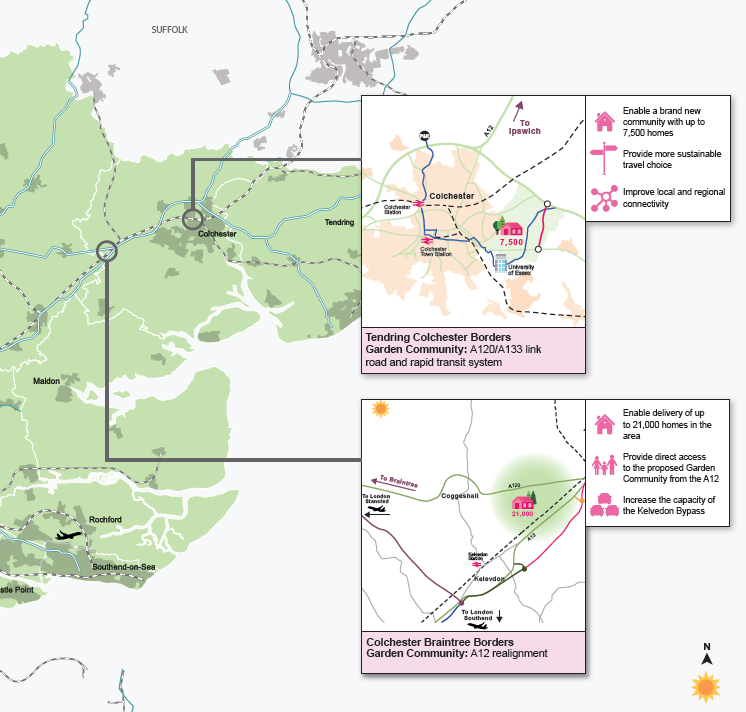Services
Funding Due Diligence
Funding Due Diligence
We carry out due diligence on business cases and financial models for public sector funding. We act for central government, Homes England, Combined Authorities and National Lottery Heritage Fund / Historic England. We have acted on some of the largest infrastructure and regeneration projects with funding worth billions of pounds.
Market Failure
For any public sector intervention in the market, it is important to identify the market failure. The main market failures (from Homes England) are:
- Coordination failure - for example, breakdown in relations between multiple scheme promoters / stakeholders preventing or delaying development. Are there multiple owners or ransom strips?
- Public good / free rider problem - for example, the Local Planning Authority requires a significant amount of off-site infrastructure benefiting multiple scheme promoters.
- Market power - for example, up-front infrastructure costs are of a scale such that the rate of return is not sufficient to attract large developers and prohibitive to smaller firms.
- Institutional failure at local government level (planning inflexibility / uncertainty) - for example, uncertainty around the risk of securing consents prevents the site from being promoted through to consents.
- Imperfect information (lack of first mover / price maker / market creator) - for example, sales and rental values in a particular submarket are unproven, preventing (or slowing) development despite demand for the scheme.
It is important to understand the business-as-usual case and explore robust options to ensure additionality in any public sector funding.
Due Diligence
Due diligence can be relatively ‘light-touch’ or a ‘deeper-dive’ depending on the circumstances. We always take time to familiarise ourselves with the business case and to understand the need for funding. We will inspect the site and the environs to check the facts on the ground. In order to ensure the business case assumptions are robust we engage in dialogue with the scheme promotor and raise written clarification questions to create an audit trail. We have carried out due diligence on various funding programmes for Homes England including the £1bn Kickstart initiative following the global financial crisis to safeguard the delivery of stalled residential schemes. We have carried out detailed due diligence on various Housing Infrastructure Fund (HIF) projects. Projects appraised include: Colchester Braintree Borders Garden Community c.£230 million of HIF funding to unlock 15,000 homes; Colchester Tendring Borders Garden Community c.£100 million funding to unlock 6,500 homes; and A320 North of Woking c.£44 million scheme to unlock 11 sites.
We have an extensive track record of European Funding going back to the 2000-2006 and 2007-2013 ERDF (European Regional Development Fund) programmes and the current 2014-2020 ESIF (European Structural Investment Funds) programme. We are still advising on JESSICA (Joint European Support for Sustainable Investment in City Areas) revolving funding. We are retained on the SCR Jessica Fund which was established in 2013 and have carried out due diligence on over 20 schemes across the Sheffield City Region economy.
We also provide due diligence on Heritage projects. We are retained by the National Lottery Heritage Fund on their Register of Specialist Support Services (RoSS). We have a long track record of working on HLF projects through-out the UK including, inter alia: Bishop Street, Derry, Northern Ireland; Ashton Baths, Manchester; Broomhill Lido, Ipswich; Blatches Barn, Essex; Briggait, Glasgow; Royal Gunpowder Mills, Waltham Abbey, London; Cultybraggan, Perthshire; Ancoats Dispensary, Manchester; Market Rasen Station; Fitted Rigging House, Chatham Maritime; Finsley Gate, Bolton; and Sheerness Dockyard, Isle of Sheppey. We have been providing advice to Historic England on their Covid resilience funding.
Finally, we provide due diligence services to Combined Authorities / Local Enterprise Partnerships. We have experience of the various Regional Growth Funds, City Deals / Devolution, Local Growth Funds, Growing Places Funds, Business Growth Programmes, Brownfield Land Fund etc. Our work involves advising on the cashflow and loan/grant funding and conditions.
Gap Funding Appraisals
We have particular expertise in gap funding appraisals based on long-term experience starting with English Partnerships and working for successive regeneration agencies since.
We have bespoke cashflow models which can calculate the gap funding (e.g. conservation deficit) net of interest savings due to the grant draw-down. We can model multiple public sector funding stream simultaneously to ensure there is no double counting of match funding.
Sensitivity Analysis
Multiple variable sensitivity analysis to test the robustness of development propositions to changes in financial parameters. The analysis is based upon a detailed understanding of the advantages and limitations of the computer software and grounded in the context of ‘real’ property market risks.
Business Plan Monitoring and Evaluation
The monitoring and evaluation of projects against the business plan. This includes the ‘draw-down’ of public sector funding as work progresses on-site. We have experience of monitoring complex urban regeneration projects on behalf of both the private and public sectors.
For further information about our services browse our case studies
